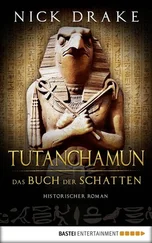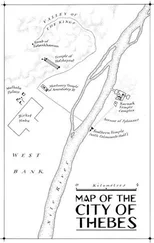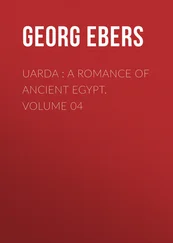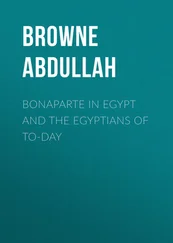Nick Drake - Egypt
Здесь есть возможность читать онлайн «Nick Drake - Egypt» весь текст электронной книги совершенно бесплатно (целиком полную версию без сокращений). В некоторых случаях можно слушать аудио, скачать через торрент в формате fb2 и присутствует краткое содержание. Жанр: Исторический детектив, на английском языке. Описание произведения, (предисловие) а так же отзывы посетителей доступны на портале библиотеки ЛибКат.
- Название:Egypt
- Автор:
- Жанр:
- Год:неизвестен
- ISBN:нет данных
- Рейтинг книги:5 / 5. Голосов: 1
-
Избранное:Добавить в избранное
- Отзывы:
-
Ваша оценка:
- 100
- 1
- 2
- 3
- 4
- 5
Egypt: краткое содержание, описание и аннотация
Предлагаем к чтению аннотацию, описание, краткое содержание или предисловие (зависит от того, что написал сам автор книги «Egypt»). Если вы не нашли необходимую информацию о книге — напишите в комментариях, мы постараемся отыскать её.
Egypt — читать онлайн бесплатно полную книгу (весь текст) целиком
Ниже представлен текст книги, разбитый по страницам. Система сохранения места последней прочитанной страницы, позволяет с удобством читать онлайн бесплатно книгу «Egypt», без необходимости каждый раз заново искать на чём Вы остановились. Поставьте закладку, и сможете в любой момент перейти на страницу, на которой закончили чтение.
Интервал:
Закладка:
‘It’s like this,’ I replied. ‘It’s like this moment.’
Suddenly he called out in excitement. A fish was pulling on his line. And then, to my surprise and his delight, he reeled it in with a skill he must have learned from his grandfather, on those long fishing days without me. And he stood-holding up the silver fish, as it danced and struggled on the line-laughing and grinning proudly.
Author’s Note
The King’s Wife to Suppiluliuma of the Hittites-‘He who is my husband is dead! I have no son! I do not want to take one of my subjects and make him my husband. I did not write to any other land, I wrote to you! They say sons are plentiful for you. Give me one of your sons. He will be my husband, and he will be King in Egypt! ’
From the Seventh Tablet, The Deeds of Suppiluliuma As Told By His Son Mursilis II
This letter (actually a clay tablet in Akkadian, the lingua franca of international diplomacy at the time) from an Egyptian queen to Suppiluliuma I, the King of the Hittites, was discovered in the Hittite archives, and is a tantalizing clue to one of the most mysterious and compelling unsolved mysteries of the Ancient World.
It is in every way an extraordinary, audacious communication-not least because the Egyptians and the Hittites had been at war for decades, battling for control of the Syrian territories and kingdoms between the borders of their empires, and so such a letter could have been seen as treacherous. But even more significantly, no Egyptian royal had ever made such a request to a foreigner, let alone an enemy; the trade in international royal brides was strictly a one-way affair. And yet here is an Egyptian queen asking her enemy for one of his sons to join her on the throne. It is an extraordinary mystery to rival that of the death of Tutankhamun.
In the letter, the queen is called ‘Dahamunzu’, which may be a translation of the Egyptian title Tahemetnesu (the King’s Wife). For complex reasons of Egyptian chronology and the uncertainty surrounding the translation of the Hittite rendering of Egyptian names, the attribution cannot be certain; some scholars propose a chronology according to which the King’s Wife might have been Nefertiti. But the letter is thought by others to have been sent by Ankhesenamun, widow of Tutankhamun, and daughter of Akhenaten and Nefertiti. The latter attribution forms the historical basis of this novel.
Ankhesenamun became the last surviving member of her dynasty, the eighteenth, when her husband Tutankhamun died aged around nineteen. She was probably only twenty-one years old herself at that moment; and she had no heirs. It is thought she was then married to Ay, the powerful courtier who had been closely involved with the royal family since the Amarna period-indeed he might even have been her own great-uncle. Already an old man by the time of the marriage, Ay ruled for only four or five years. His death must have presented Ankhesenamun, at this point perhaps twenty-five or twenty-six years old, with a grave set of dilemmas. How could she rule alone? How could she continue her line? How could she ensure the stability of her own position, and that of Egypt, domestically and internationally? Who could she trust? The elite men of the nobility and the priesthood might well have seemed more like a threat to a young and relatively inexperienced queen, than a source of support. Above all, how could she defend herself against the ambitious challenge for the crown by Horemheb, the general of the Egyptian army? No wonder she wrote in one of the Hittite letters, ‘I am afraid!’
In the eighteenth dynasty other royal women had achieved great power, including Queen Hatshepsut (1473–1458 BC), who had enjoyed the full support of the Amun priesthood in crowning herself; Queen Tiy, consort of Egypt’s own Sun King, Amenhotep III; and, most famously, Nefertiti (c.1380–1340 BC), principal wife of Akhenaten, whose story is told in Nefertiti: The Book of the Dead . But perhaps, due to her youth, relative inexperience of power, and lack of a stable royal marriage and heirs, Ankhesenamun’s position at this moment was much more vulnerable.
Egypt in the eighteenth dynasty was the greatest power of the Ancient Near East, and the Hittites were their most confrontational enemy. But after the later collapse of their empire, the Hittites disappeared from history, and not until the late twentieth century did they become the focus of archaeological and historical research. Kingship was hereditary, and the king, addressed as ‘My Sun’, acted as high priest for the kingdom. Among his responsibilities were the supervision of annual festivals and the maintenance of the sanctuaries and temples.
Hattusa, the fortified capital of the Hittite homeland, was in central Anatolia (modern Turkey); through the might of their armies (a mixture of professionals, men answering the call of feudal obligation, and mercenary troops), and their control of vassal states and territories, they conquered northern Syria and extended their empire so that it stretched from the Aegean coast of Anatolia as far as Babylon. By the time of the setting of this novel, they had established themselves as one of the key players on the international stage. King Suppiluliuma I (c.1380-c.1346 BC) was one of the great warrior kings, who corresponded on equal terms with the other kings of the Ancient Near East. But the astonishing success of the Hittite expansion brought them into direct conflict with Egypt.
At the time this novel takes place, the Egyptians and the Hittites had been at war for years. At stake was control of Syria, the crossroads for all the commerce of the Ancient Near East. From the great port of Ugarit, goods from all over the eastern Mediterranean-cedar, grain, gold, silver, lapis lazuli, tin, horses, etc.-would arrive to be sold and distributed via a network of trade routes that stretched south to Egypt, east to Babylon and north-east to Mittani. So Syria was vital for commerce, but it was also strategically indispensable, and the great empires warred and negotiated with each other for influence and dominance over it.
Egypt had long controlled southern and central Syrian territories, which were a source of great profit and political prestige. But Suppiluliuma, in a series of what must have been daring military campaigns, quickly took control of the northern kingdoms and cities of the region from the empire of Mittani. The status quo was threatened, and the region became politically volatile. (It is not hard to recognize the parallels with today’s Middle East.) Characters such as Aziru of Amurru, as historically attested, grasped the opportunity to forge alliances that suited their ambitions, and to extend their own territories.
So Ankhesenamun’s letter to Suppiluliuma requesting him to send her a son to marry was unprecedented, and came at a time of escalating conflict between the two superpowers. Suppiluliuma was, understandably, very suspicious of her request. According to the annals, he sent a high official to Egypt to investigate. And the following spring, the high official (the Ambassador Hattusa in this novel) returned with a representative of the Egyptian court (Nakht, in the novel) with a further letter:
Why did you say ‘they deceive me’ in that way? Had I a son, would I have written about my own and my country’s shame to a foreign land? You did not believe me and have said as much to me. He who was my husband has died. A son I have not. Never shall I take a servant of mine and make him my husband. I have written to no other country, only to you have I written. They say your sons are many: so give me one son of yours. To me he will be husband, but in Egypt he will be King .
According to the annals, Suppiluliuma remained suspicious:
You keep asking me for a son of mine as if it were my duty. He will in some way become a hostage, but King you will not make him .
Читать дальшеИнтервал:
Закладка:
Похожие книги на «Egypt»
Представляем Вашему вниманию похожие книги на «Egypt» списком для выбора. Мы отобрали схожую по названию и смыслу литературу в надежде предоставить читателям больше вариантов отыскать новые, интересные, ещё непрочитанные произведения.
Обсуждение, отзывы о книге «Egypt» и просто собственные мнения читателей. Оставьте ваши комментарии, напишите, что Вы думаете о произведении, его смысле или главных героях. Укажите что конкретно понравилось, а что нет, и почему Вы так считаете.











